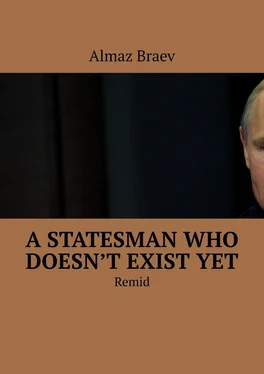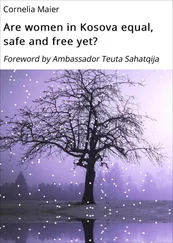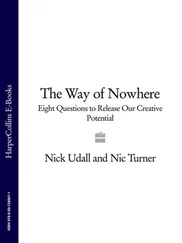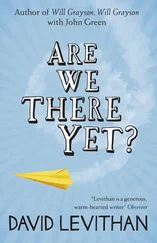Аlmaz Braev - A statesman who doesn’t exist yet. Remid
Здесь есть возможность читать онлайн «Аlmaz Braev - A statesman who doesn’t exist yet. Remid» — ознакомительный отрывок электронной книги совершенно бесплатно, а после прочтения отрывка купить полную версию. В некоторых случаях можно слушать аудио, скачать через торрент в формате fb2 и присутствует краткое содержание. ISBN: , Жанр: Политика, на английском языке. Описание произведения, (предисловие) а так же отзывы посетителей доступны на портале библиотеки ЛибКат.
- Название:A statesman who doesn’t exist yet. Remid
- Автор:
- Жанр:
- Год:неизвестен
- ISBN:9785449889546
- Рейтинг книги:5 / 5. Голосов: 1
-
Избранное:Добавить в избранное
- Отзывы:
-
Ваша оценка:
- 100
- 1
- 2
- 3
- 4
- 5
A statesman who doesn’t exist yet. Remid: краткое содержание, описание и аннотация
Предлагаем к чтению аннотацию, описание, краткое содержание или предисловие (зависит от того, что написал сам автор книги «A statesman who doesn’t exist yet. Remid»). Если вы не нашли необходимую информацию о книге — напишите в комментариях, мы постараемся отыскать её.
A statesman who doesn’t exist yet. Remid — читать онлайн ознакомительный отрывок
Ниже представлен текст книги, разбитый по страницам. Система сохранения места последней прочитанной страницы, позволяет с удобством читать онлайн бесплатно книгу «A statesman who doesn’t exist yet. Remid», без необходимости каждый раз заново искать на чём Вы остановились. Поставьте закладку, и сможете в любой момент перейти на страницу, на которой закончили чтение.
Интервал:
Закладка:
A statesman who doesn’t exist yet
Remid
Аlmaz Braev
© Аlmaz Braev, 2022
ISBN 978-5-4498-8954-6
Created with Ridero smart publishing system
Introduction. Rings Of Almanzora
INTRODUCTION
RINGS OF ALMANZORA AND REVCON
Often rulers are forced to recruit new officials from the common people. Give them the nobility for years of service. And then the children of these new nobles overthrow the ruler. What ingratitude! This happened, for example, in Russia. It was not the bourgeoisie that overthrew the last Russian Tsar. The bourgeoisie only helped. They created an Alliance with young officials.
Moreover, when the revolutionary government was already recruiting new officials, these officials again forgot that the revolution had given them a start in life. Of course, the monarchy could be replaced by the impersonal power of “scullery maids”. But the third generation of these peasants, the grandchildren of Soviet officials ( descendants of “scullery maids”), again “thanked” their native Soviet power. What black ingratitude! And what a short memory. Even today, dirt is being poured on the revolution from the mouths of the descendants of past commoners, the great and successful grandsons of the first Soviet Directors and intellectuals. According to the scenario of all revolutions, a revolution turned everything upside down and again recruited ungrateful commoners. Gave them everything their ancestors never even dreamed of. And their grandkids forgot everything… What is this? Is this the law of ingratitude?
The Tsar also had old officials working for him. But they were not enough. What was wrong with the ruler and the government?
There were obviously not enough officials. The ranks must change, rotate: some officials grow, rise in the hierarchy, get a high rank. Others, the young, come to replace them. Generations change generations. And the new party of young people and officials is growing in number together with the country. The country expands in width, and the economy gets depth. Officials multiply in number along with the growth of the economy and the width of new problems. After all, the country is growing, and the Empire is expanding. The economy is becoming more complex. New people, the most capable, are recruited trained right from the bottom, and they are being pushed forward. There doesn’t seem to be anything wrong with that. The process of recruiting fresh personnel is not necessary. Everything is fair and progressive. There is nothing wrong with this set yet.
But here comes a moment, and it is collected from a set of half-moments that these new cadres or their children of these new ones raised from the bottom together with the progress so to speak and the development of the state in width and depth, begin to resent something, show discontent, fuss, murmur. Appear populists then the revolutionaries, then by the terrorists. Everything goes to waste. What is it? A lot of work. Enough for everyone. But there is some dissatisfaction—first quiet, peaceful, then clear and bloody.
Here’s the thing.
The fact that the traditional model has such a feature. It forms rings. Hierarchy rings (Revcon’s rings). Because the traditional regime and, above all, the traditional people cannot exist without hierarchy. The traditional world cannot exist without castes. These are the highest privileged circles that are ossifying time after time. The ring is superimposed on the ring. After the period of the elite’s emergence, its justification on the ring and then the justification of rights to everything: there are also subordinate lower castes. Elitists do not allow a stranger to go up to them, and they repel the upstart. They close the door in front of him. These are castes. The Brahmans let upstarts with them in only for great merit. All upstarts would be needed to work hard to please the priestly caste.
And only the highest ruler would not wait, and he supported any talent. He raises a nugget, the most unusual of the Sudra caste, because the Supreme ruler of the state is the most important priest of the tradition, the chief Brahman of the community. But in this time, palace people, the servants, just do not let anyone in. They bristle against each new batch of competitors. Rituals, introductions, bail, even small laws, often even informal, unsigned contracts, are repeated every time a new batch of people wants to enter the golden ring. Even if the so-called revolutionary Republic replaces the monarchy and the General Secretary and Politburo change the Tsar and his Ministers, it will be an old picture or another ring. Thus, the same caste system arose under the Soviets.
“The son of a General should be a General” – this is the motto of traditional customs and all the rings of the rite. That’s why the children of the new nobles (or Communists or Democrats) knocked their foreheads on the cherished doors where they were strictly forbidden to enter. If there is already a caste system, a new Guild organization, then only a riot would help here. These revolts in the form of revolutions have occurred till now. Because of the traditional society, the caste world has lived like this for centuries. And the country is also the Empire must expand. There is no indication of distinctions in the law or even in the Constitution, but there are! And all the traditional people – Zerefs, Zeremids, Remids admit it and expect that the traditional people, the predecessors of the new party of Zerefs, Zeremids, Remids will create these rings of a hierarchy for which newcomers will not get. And then comes the fuss and new discontent.
What do we have? The children of young nobles or the young proletarian intelligentsia want to overthrow: the first the Tsar, and the second the General Secretary. Change the name and signage; nothing changes the traditional people remains true to themselves. The traditional people, I repeat, form castes. In creating the rings of the hierarchy, they have no equal. In fact, no one can get to the top, or there is already an opinion that no one can get to the top. Gold rings have already been cemented with calcium from tradition.
That’s when the people stop listening to the local leaders but first of all the teachers. The crowd loses their real elite and authorities.
We start talking about Remid.
It Remids or the old authorities have to replace the disgruntled Zerefs, Zeremids, Refags, and other troublemakers – the new generation from the bottom. Time will pass, and some invisible cycle will end. And from the new people in power, an entirely new revolutionary elite, a circle of rings will be formed. The new, now old revolutionary elite will become a hindering factor. And now, other provincials will crowd outside the door – they will want to throw the previous ones in the trash.
CHAPTER I
ANTIBUDDA
In the 7th century BC, a certain genius boy of the princely family of Shakya grew into an enlightened teacher of his people. The Buddha revealed to his soul the cause of suffering. If his community and kin were suffering, they were doing something wrong as a whole and individually. No, not yet. The cause of suffering is desire. No desire – no suffering. All ingenious is simple.
What did they want?
The Buddha forbade touching gold, silver, and women because these are the main temptations that lead to ruin. But gold and silver are not available to everyone, but only to the nobility, although the lower classes may want gold, after women, of course. Before us is a picture from the distant past, when the Remids and Zerefs are excited at the same time. No demand, no supply. There is no suffering. There is no Buddha. Gautam Buddha is not a God; he is only one link in the chain of personal enlightenment. The Buddha has grasped the truth of a particular moment. And the moment shows that all his relatives and the surrounding people were excited and suffered from excitement.
Читать дальшеИнтервал:
Закладка:
Похожие книги на «A statesman who doesn’t exist yet. Remid»
Представляем Вашему вниманию похожие книги на «A statesman who doesn’t exist yet. Remid» списком для выбора. Мы отобрали схожую по названию и смыслу литературу в надежде предоставить читателям больше вариантов отыскать новые, интересные, ещё непрочитанные произведения.
Обсуждение, отзывы о книге «A statesman who doesn’t exist yet. Remid» и просто собственные мнения читателей. Оставьте ваши комментарии, напишите, что Вы думаете о произведении, его смысле или главных героях. Укажите что конкретно понравилось, а что нет, и почему Вы так считаете.












